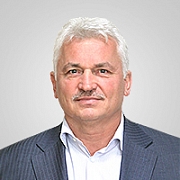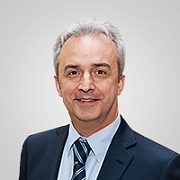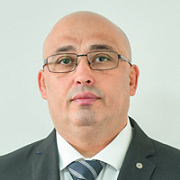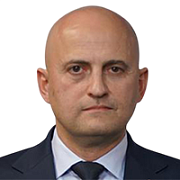- Home
- Federations
- European Sambo Federation
European Sambo Federation

-
Armenia Sambo Federation of Armenia

-
Azerbaijan Azerbaijan Federation of Sambo

-
Belarus Public Organization "Belarusian Sambo Federation"

-
Belgium Belgian Sambo Federation

-
Bosnia and Herzegovina SAMBO Union of the Federation of Bosnia and Herzegovina

-
Bulgaria Bulgarian Sambo Federation

-
Croatia Croatian Sambo Federation

-
Cyprus Cyprus Sambo Federation

-
Czech Republic Czech Sambo Union

-
Estonia Estonian Sambo Association

-
Finland Finnish Sambo Federation

-
Georgia Georgian National Federation of Sambo

-
Germany German Sambo Federation

-
Great Britain British Sombo Federation

-
Greece Hellenic Federation Sambo, Kurash, Chidaoba

-
Hungary Hungarian Sambo Federation

-
Iceland Sports Union Sambo Iceland

-
Ireland Sambo Ireland

-
Israel Sambo Federation of Israel

-
Italy Italian Federation of Kickboxing, Muay Thai, Savate, Shootboxing, SAMBO, MMA (FEDERKOMBAT)

-
Latvia Latvian Sambo Federation

-
Lithuania Lithuanian Sambo Federation

-
Montenegro Montenegro Sambo Federation

-
Netherlands Dutch Sambo Federation

-
Poland Polish Sambo Association

-
Republic of Moldova Sambo Federation of Moldova

-
Republic of North Macedonia Sambo Federation of North Macedonia

-
Romania Romanian Sambo Federation

-
Russian Federation All-Russian Sambo Federation

-
Serbia Sambo Federation of Serbia

-
Slovakia Sambo Federation Slovak Republic

-
Slovenia Slovenian Sambo Federation

-
Spain Spanish Federation of Olympic Wrestling and Associated Disciplines

-
Switzerland Swiss Federation of Sambo and Associated Disciplines

-
Turkey Sambo Clubs Federation of Turkey

-
Ukraine National Ukrainian Sambo Federation

-
France French Federation of Wrestling and Associated Disciplines


The International Association of the public union the “European Sambo Federation” was established in 1991 and officially registered in 2005. The European sambo federation (ESF) is a member of International Sambo Federation (FIAS).
Now the European sambo federation unites 37 National Sambo Federations from Armenia, Austria, Azerbaijan, Belarus, Belgium, Bulgaria, Croatia, Cyprus, the Czech Republic, Estonia, Finland, France, Georgia, Germany, Great Britain, Greece, Hungary, Ireland, Israel, Italy, Latvia, Lithuania, Macedonia, Moldova, Montenegro, the Netherlands, Poland, Portugal, Romania, Russia, Serbia, Slovakia, Slovenia, Spain, Switzerland, Turkey and Ukraine. The candidate countries to join the ESF are Malta, Bosnia and Herzegovina. 18 National Sambo Federations have got the recognition from their National Olympic Committees.
The main goal of the European sambo federation is to develop and popularise sambo in Europe, to support national sambo federations and to promote sambo into the International Olympic movement. Annually the European sambo championship, the European SAMBO Championship among youth and juniors, International tournaments and national championships are held in Europe. The European sambo championship among cadets is organised biennially.
The First Open European SAMBO Championships was held in 1972 in Riga (Latvia) under the auspices of FIAS. In 2004 the First European Combat SAMBO Championships were held in Siauliai (since 2007 it has been organised together with sports sambo).
Since 2005 the European SAMBO Championships among adults and the Youth and Junior European SAMBO Championships have been traditionally organised.
In 2007 SAMBO was presented at the First European Games in Ukraine.
In 2010 SAMBO was included in the SportAccord World Combat Games which were held in Beijing (China).
In 2012 the European SAMBO championship among cadets (15-16 years, boys and girls) was organised for the first time in Tallinn.
In 2013 SAMBO was included in the official program of the 27th Summer Universiade, the World Students Games in Kazan (Russia) and also into the Asian Games.
In 2014 SAMBO was included into the program of the European Games.
In 2015 First European Games were held in Baku, Azerbaijan. The same year European SAMBO Cup was included in the ESF Calendar.
In 2016 First World University SAMBO Championships under the banner of FISU was held in Nicosia, Cyprus.
2017 - World SAMBO Championships were held in Sochi, Russia. A record number of 490 athletes from 90 countries were competing for the titles of World Champions.
In 2018 Orel (Russia) hosted for the first time the World Schools SAMBO Championships under the auspices of the International School Sports Federation (ISF). Athletes from 21 countries took part in the competition.
2019 - II European Games were held in Minsk.
Azerbaijan, Belarus, Bulgaria, Cyprus, Greece, Georgia, Italy, Moldova, Latvia, Lithuania, Russia, Spain, Montenegro and Serbia hosted many sambo championships during these years.
In 2012 at the report-electing congress of the European sambo federation Dr. Sergey Eliseev, the president of the All-Russian Sambo Federation, was re-elected for the position of the ESF president for the next period.




